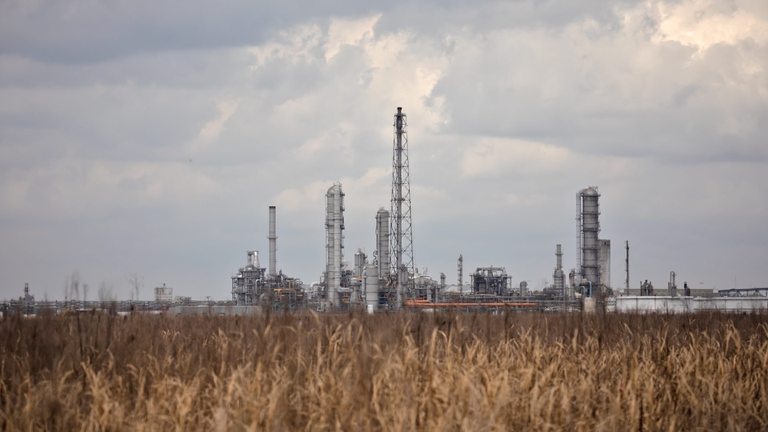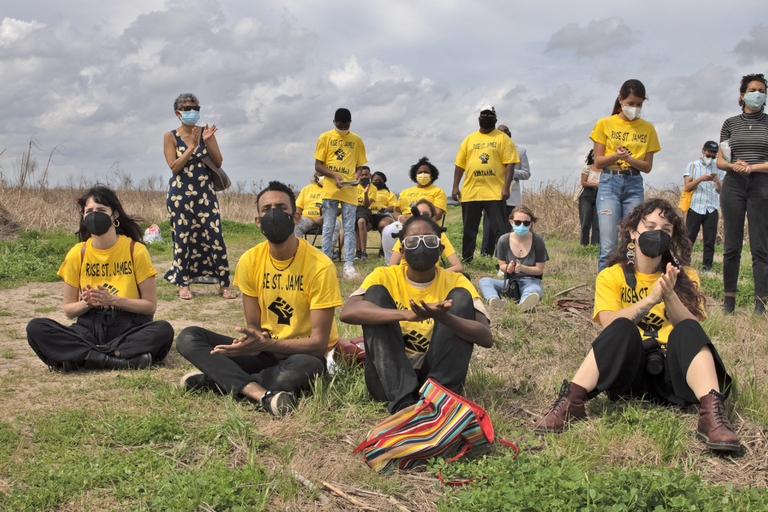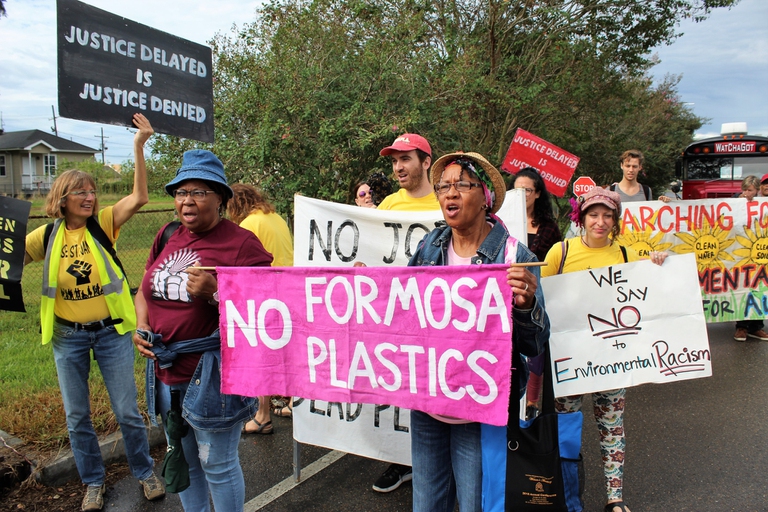
Plastic pollution is airborne too. Microplastics are being carried across continents by the wind, as a recent study reveals.
Sharon Lavigne, one of the six winners of the 2021 Goldman Environmental Prize, is fighting to protect her community from plastics corporations.
Years of fighting to save her neighbourhood from the abuses of petrochemical multinationals, fuelled by a sincere and all-encompassing commitment to protect a community that, for too long, has been a victim of unjust and dangerous decisions. This is the story of Sharon Lavigne, the 68-year-old US activist who is among the six winners of the prestigious Goldman Environmental Prize, awarded to members of civil society who fight for the climate.
Lavigne is from St. James Paris, located in a part of the US state of Louisiana known as “Cancer Alley”, due to the high concentration of industrial production plants and the high rates of cancer and respiratory issues among the population. In 2019, her work put an end to plans for the construction of the umpteenth, enormous industrial complex by Chinese company Wanhua. Now, Lavigne aims to block a new, 9.4-billion-dollar project led by Formosa Plastics.
Lavigne has lived her whole life in St. James Parish, on the banks of the Mississippi River, between New Orleans and Baton Rouge. There are almost 150 industrial facilities in the region, including oil refineries, plastic production factories, and petrochemical plants. The homes of approximately 20,000 local residents – most of whom are Black – are dangerously close to furnaces and oil pipelines that continuously release noxious substances into the air and water.
Residents of Cancer Alley are 50 times more exposed than the national average to the risk of contracting cancer due to atmospheric pollution, due primarily to chloroprene emissions. In town, everybody knows someone who has died because of the factories.
Sharon Lavigne has witnessed the gradual transformation of the area caused by the corporations. In 2018, at the end of her teaching career, she founded Rise St. James, an organisation through which Lavigne devotes all of her time to environmental activism.
Around the same time, Chinese company Wanhua was planning to build an enormous, 1.25-billion-dollar industrial complex for plastic production in St. James Parish. The plant was set to generate over 450 tonnes (or one million pounds) of hazardous waste per year, which would have caused particular harm to residents’ respiratory systems.
The St. James Parish local administration immediately approved the plan. What’s more, Wanhua was to be granted a ten-year exemption on any kind of property tax, in addition to a promise that town planning would be altered in the area so as to allow the facility to be built closer to private residences, which are primarily home to low-income communities.
Through Rise St. James, Lavigne fought to halt the Wanhua project. She took part in meetings on the issue, bearing witness and questioning officials on the possible consequences that this latest factory would have on the environment and the health of residents, organising protests and public events. Lavigne knocked on every door in the area, in an attempt to raise awareness among the citizens about what was happening around them. She wrote letters to local newspapers, contacted experts and researchers, and funded advertising to put a halt to the plant’s construction.
Her efforts, and those of all the activist who followed in her footsteps, were not in vain. In September 2019, Wanhua terminated the project and cancelled all its plans in the St. James Parish area, stating that production costs had become unsustainable.
“This is a victory for all of us,” Lavigne commented soon after the news came out. “We aren’t just going to sit back and accept that it’s open season for industry to build in St. James Parish. We are ready to fight, and next up is Formosa”.
After the victory over Wanhua, now Lavigne is looking toward the next challenge. Formosa Plastics, a Taiwan-based multinational, has plans to build a huge, 9.4-billion-dollar industrial complex in St. James Parish.
Formosa transforms the ethanol contained in natural gas into plastic, used to produce bottles, shopping bags, and other single-use objects. According to revelations by the Coalition Against Death Alley (the area’s other unhappy nickname), to build the facility the company would pour concrete on lands currently used to grow sugarcane, eliminating an important drainage area and putting neighbouring homes, churches, and businesses at risk. The factory would be active 24 hours a day, 7 days a week, emitting 14 million tonnes of CO2 every year.
Lavigne and her organisation, together with a network of activists and local organisations, are currently working to put pressure on officials and block the construction of the complex.
Thanks to her tireless commitment in the field of environmental activism, which led to concrete results, Lavigne was chosen to be among the six winners of the 2021 Goldman Environmental Prize. Alongside her, we find Kimiko Hirata (Japan), Liz Chicaje Churay (Peru), Gloria Majiga-Kamoto (Malawi), Thai Van Nguyen (Vietnam), and Maida Bilal (Bosnia and Herzegovina).
Siamo anche su WhatsApp. Segui il canale ufficiale LifeGate per restare aggiornata, aggiornato sulle ultime notizie e sulle nostre attività.
![]()
Quest'opera è distribuita con Licenza Creative Commons Attribuzione - Non commerciale - Non opere derivate 4.0 Internazionale.
Plastic pollution is airborne too. Microplastics are being carried across continents by the wind, as a recent study reveals.
Levels of particulates in New Delhi in 2020 were once again far above safety thresholds, with extremely serious health consequences for its citizens.
A major oil spill in the Ecuadorian Amazon in April has left the Coca River polluted. The indigenous Kichwa are suing the companies whose pipelines broke.
Molecules that eat up plastic waste, including PET bottles, may soon become widely used as scientists leap ahead in developing new super enzymes.
In Italy’s Land of Fires between Naples and Caserta, activists like Carmen Medaglia are fighting to promote new ways of managing waste.
Toxic substances in Kamchatka’s waters have killed 95% of marine fauna and caused health problems for surfers. The causes, however, are still unknown.
A Magellanic penguin was found lifeless on a Brazilian beach: in its stomach, an N95 face mask. Researchers believe the animal died from ingesting it.
The drop in air pollution during worldwide lockdowns helped prevent thousands of premature deaths. But the situation is returning to pre-crisis levels.
Dozens of people who fell ill because of toxic fumes and waste from a lead refinery on the outskirts of Mombasa have found justice in court.










